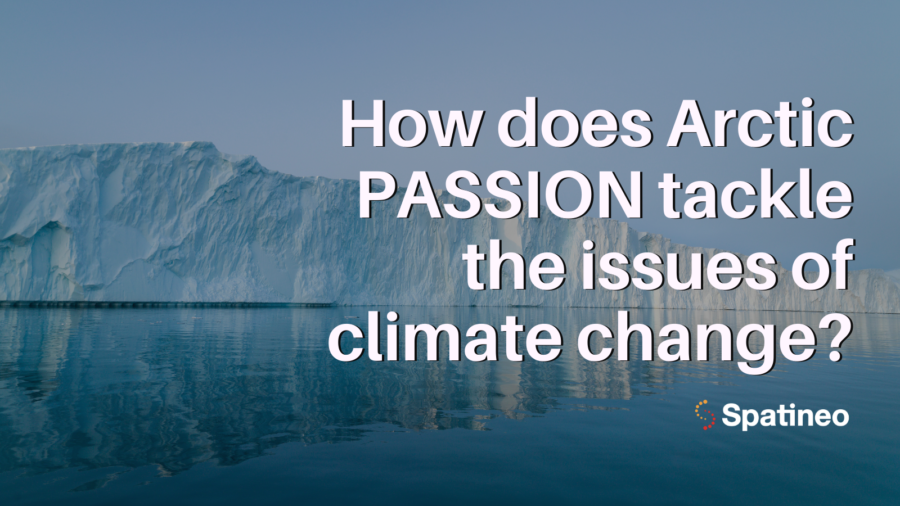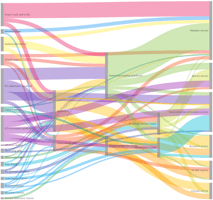How does Arctic PASSION tackle the issues of climate change?
What is Arctic Passion?
Climate change is changing the Arctic more rapidly than any other region. Now is the time to develop an observing system that can help us monitor the ongoing changes, develop mitigation strategies and support sustainable development. The Arctic PASSION project is centralized in tackling these issues.

The Arctic PASSION (Pan-Arctic observing System of Systems: Implementing Observations for societal Needs) is a substantial international project that aims to integrate observing systems for the Arctic. With an improved and integrated system it would be possible to address the challenges caused by climate change. The European Union wants to support the development of such a system by funding the Arctic PASSION project with 15 million euros funding from the Horizon 2020 programme for years 2021-2025. The project team consists of 43 partners from 17 countries all over the world, including indigenous communities across the Arctic.
The key motivation behind the project is the need to monitor the Arctic area, which is changing rapidly due to climate change. The effects of climate change have already caused significant economic, scientific and societal challenges. To address these challenges, there is a growing demand for a sustained and accessible observing system for the Arctic that answers the needs of its users.
The current Arctic observing system is inadequate and does not serve the end-user. The system’s components are fragmented and uncoordinated. Moreover, there are gaps in data coverage, data may be difficult to access, and accessible data are often not directly useful to end-users.
The main goal of the project is to create a pan-Arctic Observing System of Systems (pan-AOSS) that provides accessible high-quality Earth observation information that addresses the needs of people living in the Arctic. This system would enable better monitoring of changes in the Arctic area, improve forecasting, support sustainable development and help in developing mitigation and adaptation strategies.
In addition to improving and integrating existing Arctic observing system elements, Arctic PASSION will develop a few pilot services. These pilot services will focus on providing users with essential information within sub-areas that are currently inadequately served. The pilot services will be designed to have the highest possible societal and economic benefit for people living in the Arctic. For this end, indigenous peoples of the Arctic will be collaborated with.
To ensure long-term investments in a pan-AOSS there is a need for a deep understanding of how Arctic observations may benefit different societies. By quantifying the observation system’s monetary and non-monetary societal benefits the financial and political sustainability of pan-AOSS can be ensured. However, despite recent efforts in estimating the costs and benefits of an Arctic Observing System, there is no in-depth analysis of societal benefits of Arctic observations which would be sufficient to justify long-term funding of a pan-AOSS. For proper justification of the project, an impact analysis assessing societal and economic benefits needs to be performed.
The Arctic PASSION project will produce and publish a transparent, in-depth analysis of the scientific, economic, and societal costs and benefits of a pan-AOSS. Moreover, the socio-economic impacts of the pilot services that are generated in the project will be assessed to gain a better understanding of their advantages.
Spatineo is going to work with benefit assessment in the Arctic PASSION project, collaborating with FMI (Finnish Meteorological Institute), JRC (Joint Research Center) and CNR (National Research Council of Italy). More specifically, Spatineo is going to develop a Value Tree -tool, and publish a master’s thesis covering existing impact assessment methods.
The Value Tree -tool can be used to visualize how value flows from a specific measurement infrastructure into some Societal Benefit Area. With the tool, it is possible to estimate how investments into Arctic observing systems contribute to socio-economic benefits in society. Visualization of the benefits acts as a powerful tool for conveying information to key stakeholders and decision makers.
Master Thesis based on Arctic Passion
The master’s thesis is written by our junior GIS consultant, Isabel Donner, with the title Assessing Societal Benefits and Economic Impacts of Earth observation data in the Arctic area. The main objective of the thesis is to make a pre-study for the Arctic PASSION project. The pre-study will support the evaluation and choice of most suitable tools for the assessment of benefits of Earth observation services and data in the Arctic area.
The research will be executed in two parts: as a literature study and a case study. The literature study will review the most essential impact assessment tools and find the best applicable methods for assessing Earth observation services and data in the Arctic. In the case study these methods will be applied to assess the societal and economic impacts of existing services.
Spatineo is very excited to be a part of this project. Arctic PASSION will improve the societal and economic well-being of Arctic communities significantly and there will be global benefits from improving the monitoring of the Arctic area. Spatineo’s work in the project will contribute to ensuring that the benefits of the observing system and the pilot services are optimised and communicated efficiently.
This project has received funding from the European Union’s Horizon 2020 research and innovation programme under grant agreement No. 101003472.


.jpg?width=50&name=Spatineo%20-%20JooWorks%20-%20Henkil%C3%B6kuvat0023%20(1).jpg)


